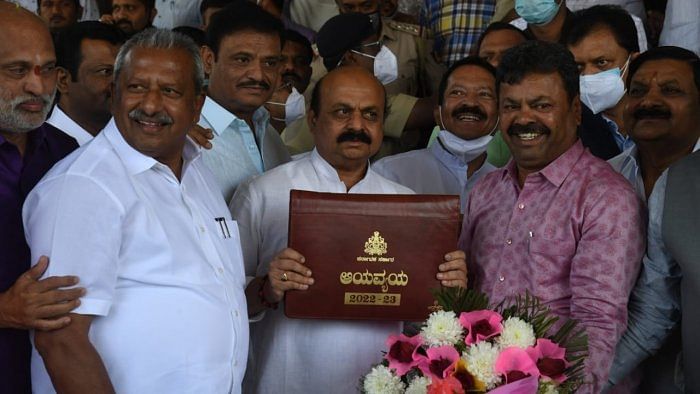
The Chief Minister has presented a total budget of Rs 1.9 lakh crore of total revenue, just 0.16% higher than the last year’s budget. An important point that needs attention here is that despite this, the total expenditure is Rs 2 lakh crore, 4.48% higher than last year’s revised estimates (RE). In other words, Bommai achieved better expenditure without taxing or squeezing revenue sources.
Positively looking, this can be termed as better financial management, but the flip side is he could have tapped new revenue sources without hampering and disturbing the usual taxpayers and become a prudent tax management expert.
Interestingly, the chief minister has restricted the borrowing that he mentioned in the budget speech. In this year, borrowing was 27% of the total revenue as against 29% RE and this is a good effort. Thanks to the share of grants and taxes from the central government, the deficit could be restricted to Rs 14,699 crore. However, the state should not be complacent as the debt burden on the state exchequer is certainly high.
On the expenditure side, the chief minister has brought forth education, employment, and empowerment. The welfare of the excluded seems to be the one line of arguments going through. As a result, the allocation to the education sector has been placed at Rs. 31.98 or 12% of the total expenditure, higher than the revised estimates of the 2021–22 budget.
Through this budget, the chief minister has introduced a number of new schemes. A few immature critics expected this to be an election-oriented budget. But the prudent chief minister has played wisely by incorporating popular demand and, at the same time, including many development-oriented initiatives.
Four important lacunae emerged significantly. First, untapped revenue has not been properly looked at (like taxes on cigarettes and tobacco); second, the allocations are not focused and therefore may not yield immediate results; third, the important issue of the rural workforce migrating to urban areas and finally causing stress on the economy is not attended to and that could have been done with a focus on rural industrialisation; lastly, it was in a hurry that allocations to the irrigation sector have been reduced from Rs 21,000 crores to Rs 20,000 crore this year, and out of this, 1,000 crore has been allocated to the Mekedatu project to alleviate the agitators.
Cautious management indeed.
(The writer is former director, Institute for Social and Economic Change, Bengaluru)
Check out the latest videos from DH: